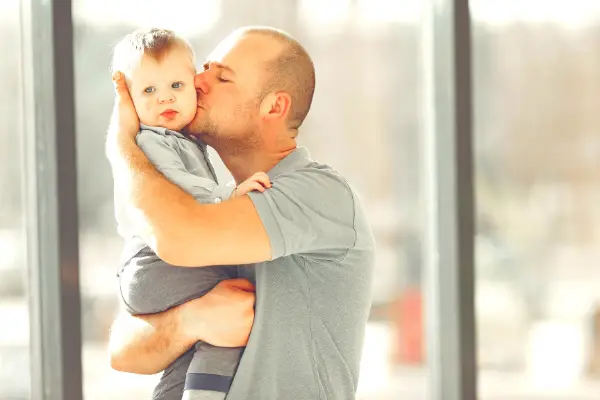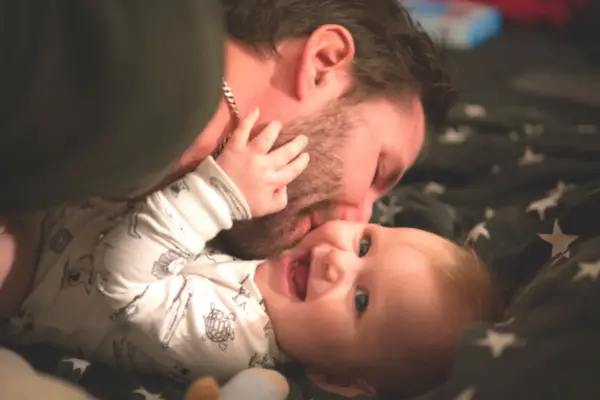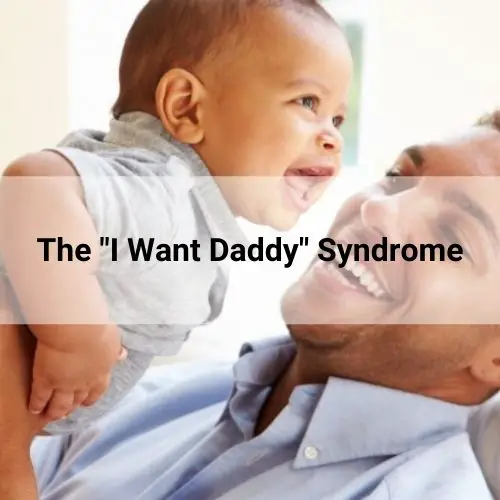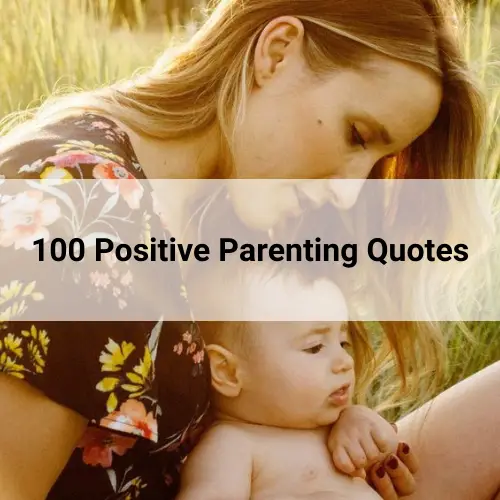Table of Contents
Health for new dads
Do you know about the term Paternal Postnatal Depression (PPND)? You probably haven’t heard of this because during the postnatal period most people are focused on new moms – and rightly so, as they need a lot of support and love during this transitional time.
But what it is not known is that this condition (PPND) is suffered by a new father (or father-to-be) and is something that could either happen during their partner’s pregnancy period (which is usually referred to antenatal) or during the first couple of months after the little one arrives.
This is a very common and serious illness and it could affect anybody, regardless of age, profession and cultural background. And the reason why PPND is often not even considered as an existent condition is because men tend to keep this problem to themselves, as it is often recognized as a stigma. In fact, it doesn’t matter whether you become a father for the first time or third time, this could happen to all.
So, antenatal or postnatal depression is not only suffered by moms, but by dads too. And it is not surprising either, as they are now facing new and impending responsibilities that come along with being a parent. If a person has suffered from mental health issues before becoming a father, then this could also lead to more mental health problems during and after pregnancy, but it is not always the case.
Changes are happening all the time and everywhere

Changes within their Biology
Mom’s biological changes are very obvious, but did you know that before childbirth men also experience alteration to their biological systems? For example, right before childbirth, their testosterone levels tend to decrease as they give way to an increase of other hormones, such as vasopressin and prolactin. What this basically means is that his hormones are also helping him prepare for fatherhood, and it can be argued that this has been an evolutionary mechanism that has helped men to transition from being acarefree man to becoming a dad. As a result, the variation of his hormones also influence areas of their brains within the first year of their child’s life. This means that on a biological level men are also developing skills that will help them care to the needs of his newborn. Moreover, it seems like these skills usually involve having a greater sensitivity whenever they hear their child is crying, or they also face a greater sense of being present and to care for another person’s needs, and a strong capacity to bond emotionally with their child. As a consequence of all of these biological changes, men are able to face clinical depression or any other mental disorders before the birth and during the first couple of months of their child’s life, as these adaptive hormonal changes could definitely change the way men experience their new set of responsibilities and life.There are a lot of things in common
One of the things that all new parents have in common is the fact that they all – or most of them- think that raising a child is one of the most difficult –yet- rewarding challenges they will ever face in their lives. Most of them complain about the lack of sleep (especially during the newborn phase) or how they are still trying to figure out how the pram works even though their child is almost 3 months old. Indeed, there are a lot of changes that are being experienced by new parents, and they can definitely cause a mixture of anxiety and depression that could potentially affect fathers. Unfortunately, many new fathers don’t receive the correct support when it comes to dealing with their distressing feelings, thus they may find fatherhood to be confusing, stressful and even annoying, as they are not aware that they are probably thinking and feeling this way due to the internal changes that they are also going through (asides from the external obvious changes as well). As a matter of fact, most new fathers that are going through an emotionally difficult time before or after giving birth, have another thing in common: it is very likely that they have kept these feelings of discomfort to themselves, and this can be blamed on several reasons. From not wanting to worry their partners, or because they are either sleep deprived or worried about financial issues, new fathers tend to keep their feelings to themselves, something that could signify an even more difficult time for them. Antenatal and postnatal depression and anxiety is something real that occurs to many men, let’s talk about this!What are the chances of developing mental health problems as a new father?

● Have you had anxiety or depression before becoming a father? ● Are you currently facing issues with alcohol or drugs? ● Does your partner have anxiety or depression? ● Do you feel like you don’t add anything positive to your partner or child? ● Are you feeling stressed out due to finances? ● Do you think you are alone even when you are surrounded by people? ● Is your baby unwell? ● Are you finding it difficult to bond with your child? With your partner? With any other family members? ● Do you feel like you are being left out or floating whenever you are at home with your partner and newborn?If you answer Yes to several of these questions then we strongly encourage you to talk to a professional as they will be able to help you.
What are the signs or symptoms that fathers have whenever depression or anxiety are present?
It’s very important to keep an eye open whenever a thought, feeling or behaviour that could possibly be damaging continues to appear within you, as they could offer an insight of how you are truly feeling as your innermost needs are trying to express themselves. You are not a failure for feeling all of this, especially if you think that talking about fatherhood will affect your masculinity or how others perceive you, in fact, it can be said that if you are already reading this and you are looking for help, then it is because you want to get better, so good for you! In general, anxiety and or depression can be hard to see in the first place in new dads because most of the symptoms can be related to general stress or exhaustion that is also correlated to caring for a newborn. So, symptoms may overlap one with another, thus, if you are feeling exhausted or like you haven’t slept in two years, this does not necessarily mean you are dealing with anxiety or depression. If, on the other hand, you are constantly feeling – and feeding – negative thoughts about yourself, your life, your partner or your child, then you may want to have a closer look at all of these thoughts, as they could be telling you more about the changes that must be made in order to find a positive balance and light in life. And even though antenatal and postnatal depression and anxiety can be materialized in different ways, as every person is a world in itself, here are the most common symptoms:● There is a lot of indecisiveness in your life. Whether you are asking yourself about fatherhood or about your selected partner, you are very indecisive with all your life’s choices. ● You feel fear, helplessness and are very uncertain about the present and the future of your life. ● You tend to withdraw from situations where you are required to be social, they could be either with the rest of your family, your work or with your friends. ● You find yourself arguing a lot with your partner, it seems like you can’t stomach their personality, or way of thinking. ● You are abusing a substance, it could either be alcohol or drugs. ● You are dealing with insomnia. ● You constantly have negative parenting thoughts where you are more worried about paying attention to them than to your child.
Tips for maintaining a stable emotional health:

● Spend some quality time with your partner and child. Even though it would be great to spend alone time with your partner, she may be going through a lot of personal situations and emotions and is not ready to leave your child alone with someone else. This is why doing activities where all of your family can be involved is highly encouraged. ● Listen to your body, even though it is very likely that a loss of sexual activity is happening as your partner needs to recover from childbirth, don’t overthink about being intimate. ● Prepare yourself for fatherhood, get involved during your partner’s pregnancy, feel your baby kick or talk to your wife’s belly. You don’t have to be detached from them, in fact, don’t think you can’t be involved in the mother-child relationship, as the child is also yours. ● Attending prenatal classes is also a good idea as you may get to know other expectant fathers. It will also allow you to see more about how labor occurs. ● Talk to your partner about how you feel, she may be more understanding than what you think. ● And after your child is born, take care of them. Be involved in their upbringing, have a special connection with them, change their diapers or help with the feeding, do everything you possibly can to share responsibilities with your partner.Do remember that there are plenty of parenting programmes and relationship counselling that could help you improve the quality of your life. Do not hesitate to contact a professional who will be more than happy to help you throughout this new chapter in your life. Are you looking for the best gift for your dad? Check out this inspiring prayer wood plaque on Amazon. Click here to view prodct.
Related Articles:





